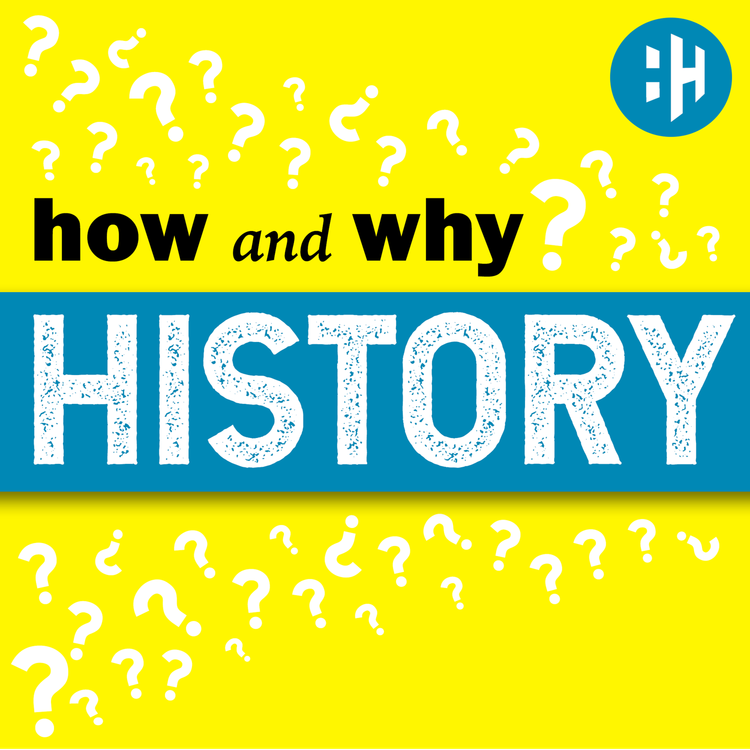Share

How and Why History
The United Nations at 75
In the aftermath of the Second World War, 850 delegates from 50 nations gathered in San Fransisco, determined to establish an organization which would preserve peace and help build a better world. Over the last 75 years, the UN has committed itself to maintaining international peace and security, and promoting social progress, better living standards and human rights. But how did the UN come about? How effective has it been in maintaining peace in the world? And where might it have failed?
Rob Weinberg asks the big questions about this important development in global affairs with the leading analyst of UN history and politics Professor Thomas Weiss of the City University of New York’s Graduate Center and Distinguished Fellow at the Chicago Council on Global Affairs.
More episodes
View all episodes

King David
25:37|One of the Old Testament’s most compelling figures, David was anointed as king of a united Israel, conquering Jerusalem and bringing the Ark of the Covenant into the city. First renowned for his musicianship and killing Goliath, David was feted by King Saul who then turned against him. But how did David rise to power and importance? Why was the capture of Jerusalem so significant? And how sure can we be that David actually existed? Rob Weinberg asks the big questions about this important but elusive figure to Steven McKenzie, Professor of Hebrew Bible and Old Testament at Rhodes College in Memphis, Tennessee.
Alfred the Great
35:22|Ever since his reign in the 9th century, Alfred the Great has been celebrated as one of the most accomplished of our kings. A learned and religious man who encouraged education, Alfred defended his lands against Viking invaders. But how did Alfred, King of Wessex become Alfred the Great? How effective was he in fighting the Vikings? And why did he burn those cakes? Rob Weinberg asks the big questions about this unforgettable king to historian Justin Pollard, author of Alfred the Great: The Man who made England.
The South African Boer War
31:08|From 1899 to 1902, a bloody war was fought between the British Empire and two independent Boer states – the Republic of Transvaal and the Orange Free State – over the Empire's influence in South Africa. But how and why did the war come about? How did the Boers achieve initial success? Why did the British set up concentration camps? Rob Weinberg asks the big questions about this complex conflict to Dr Stephen Badsey, Professor of Conflict Studies at the University of Wolverhampton.
The Great Fire of London
30:48|In September 1666, the Great Fire of London destroyed more than 13,000 houses, 87 Parish churches as well as St Pauls Cathedral, and uprooted hundreds of thousands of Londoners. But how did the fire start and spread so rapidly? Why did King Charles II intervene and what took him so long? And what were the social and economic consequences of the fire? In this edition of How and Why History, Rob Weinberg asks the big questions about this unforgettable event in the history of London to historian Ian Mortimer, author of the Time Travellers Guide to Medieval England.
The Battle of Britain
22:52|In a moment of great danger to national survival, the Royal Air Force defended the United Kingdom against large scale attacks by the Luftwaffe. So how did the Battle of Britain play out? What was Germany’s objective? And how important was it to the direction of the Second World War? To answer the big questions about this seminal moment in British history, Charlie Mills talks to Dr. Mario Draper at the University of Kent
The Black Death
16:15|Between 75 million and 200 million people died in the Black Death, or Plague, which caused social, economic and religious upheavals that had a profound effect on the course of European history. How did the Black Death come about? How did if affect particular populations? For how long did it ravage societies? Rob Weinberg asks the big questions about the most devastating pandemic in history to Dr. Eyal Poleg at Queen Mary University of London.
Joan of Arc
23:58|In the early 15th century, a French village girl became a heroine for her role in the French victory during the Lancastrian phase of the 100 Years War. But it took 600 years before Joan of Arc was canonised as a Roman Catholic Saint. How did she become such a famous name in history? Why did she join the Siege of Orléans? And how did she come to be burned at the stake at just 19 years of age? Rob Weinberg asks the big questions about this legendary figure to medieval historian Major Imogen Corrigan.
The Gunpowder Plot
18:15|On 5 November 1605, a planned assassination attempt on King James I was thwarted. While a group of English Catholics planned to blow up the House of Lords during the State Opening of Parliament, the name of the man caught guarding the gunpowder became legendary – Guy Fawkes. But how and why did the gunpower plot come about? And why did Guy Fawkes become the most famous of the plotters? Rob Weinberg puts the big questions about this most famous of failed assassination attempts to Dr. Leonie James at the University of Kent.